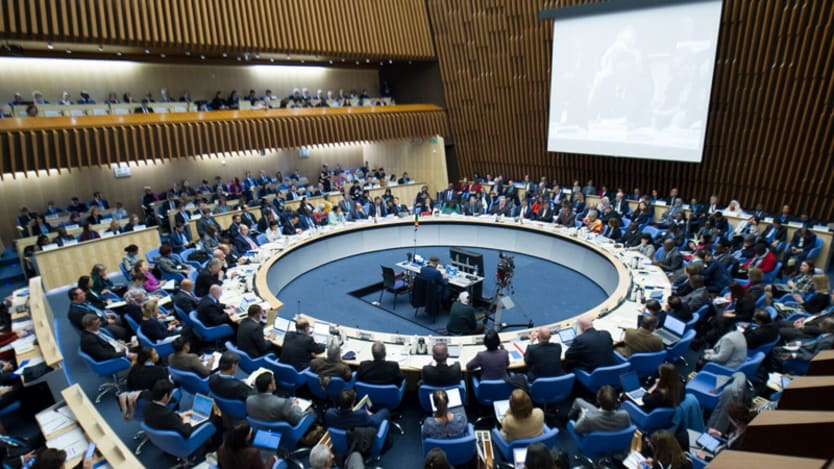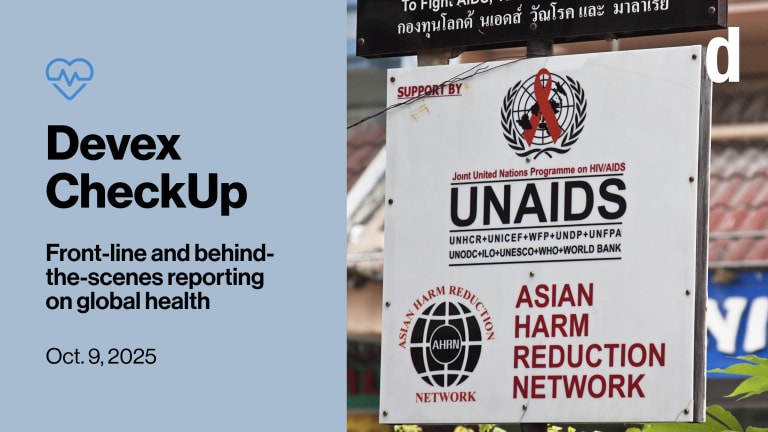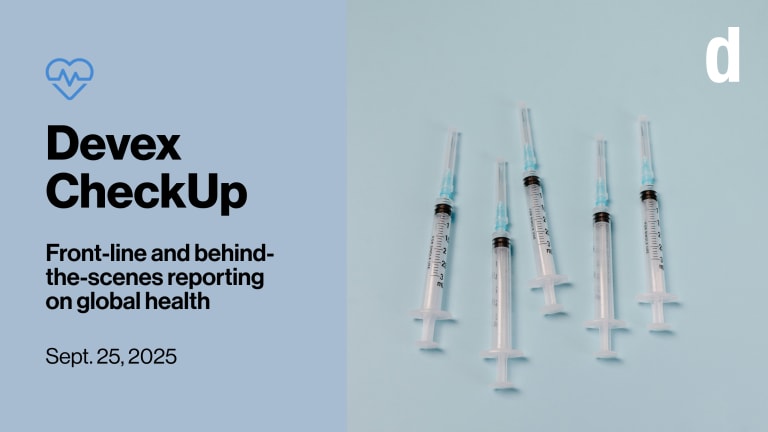
MANILA — The World Health Organization is expected to confront two controversial issues during the executive board’s 144th session, opening Thursday, as stakeholders gather to discuss its reports on access to medicine, as well as proposals on its engagement with nonstate actors.
As in previous years, member states are likely to spend considerable time on the issue of access to medicines, vaccines, and other health products. The source of discontent this time surrounds WHO’s draft roadmap on the issue for 2019-2023, and its report on cancer medicines.
Under the roadmap, WHO has identified actions and deliverables to improve access to quality medicines, including promoting transparency in health products’ research and development costs, and supporting efforts aimed at delinking the price of health products from those costs.
Manufacturers, particularly pharmaceutical companies, often argue that the high cost of medicines and vaccines is meant to help fund R&D for future innovations, though WHO seems to be challenging this assertion.
The United Nations health agency is also planning to provide technical support to countries that “intend to make use of the provisions contained in TRIPS ... in order to promote access to pharmaceutical products.” The trade-related aspects of intellectual property rights, or TRIPS, provisions recognize the rights of member states to protect public health and promote access to medicines for all, including the possibility of overriding patents for the manufacture of lower-cost drugs. This is complex, however, and lower-income WHO member states, in particular, have increasingly asked the body for assistance in navigating it.
At the executive board sessions in January last year, the topic elicited a strong exchange of words between member states. The U.S. representative was strongly against WHO intervention on issues related to intellectual property, saying: “The United States maintains it’s inappropriate for WHO to intervene on matters in the domain of the World Trade Organization, particularly with respect to interpreting member states’ legally binding TRIPS obligations.”
Calls for transparency in reporting the costs of R&D is also one of the policy recommendations in WHO’s cancer medicines report, which argued that the revenues of most cancer medicines on the market “are significantly above the risk-adjusted costs of R&D estimated in the literature.” Returns on many of the cancer medicines are expected to increase further because of patents or market monopoly, according to the report.
The “pricing of medicines is unconnected to either the relative or absolute therapeutic value of the medicines, or the costs of R&D and production,” the authors write — contradicting prevailing arguments in the industry that lowering the price of medicines would impair future R&D.
Thomas Cueni, director general of the International Federation of Pharmaceutical Manufacturers and Associations, told Politico the report was done without proper consultation and called its “assumptions” on how the pharmaceutical industry operates “deeply flawed.”
“The WHO is asking good questions and providing useful and relevant data about cancer drug development. Criticism from the drug companies is expected, but when there are disputes over facts, we should have more transparency,” James Love, director of Knowledge Ecology International — an NGO working on issues around intellectual property — told Devex.
The cry from civil society
Another area receiving attention prior to the meetings is civil society’s engagement with WHO. While WHO Director-General Tedros Adhanom Ghebreyesus has openly encouraged such engagement, there are mounting concerns that the current proposals on governance reform suggest otherwise.
This includes, in particular, the proposed changes in the participation of nonstate actors in governing body meetings, such as the executive board sessions. The suggestions for nonstate actors to speak in clusters or constituencies and limiting the number of slots allotted for them to make interventions during the executive board meetings and the World Health Assembly have elicited concern.
Thomas Schwarz, a member of the Geneva Global Health Hub’s WHO working group, argued in a blog post this was “hardly feasible” given the variety of NGOs engaged in the meetings. “The proposals forwarded by the [executive board] chair have the potential to substantially change — and deteriorate — the scope of our engagement in WHO’s normative and regulatory work,” he wrote.
Civil society concerns are one part of the issues plaguing WHO’s engagement with nonstate actors. In the director-general’s third annual report on the implementation of the WHO’s Framework of Engagement with Nonstate Actors, he underscored challenges including defining the extent of activities of nonstate actors that may further industry interests, and in ensuring WHO maintains its independence from any undue influence as a result of its engagement with nonstate actors.
“The financial and human resources required to develop and maintain an organization-wide systematic due diligence and risk assessment system, both for the standard and the simplified procedures, remain an issue that will have to be further assessed in the evaluation planned for 2019,” according to the report.
Budget also tops agenda
WHO’s proposed program budget for the next two years and the investment case that underpins its five-year strategic plan are also expected to face scrutiny.
WHO needs $14B — here's how it plans to raise it
Budget negotiations at WHO have traditionally been a challenge. Devex speaks with Tedros and two of his directors for details, including what the organization plans to do differently.
WHO aims to raise $14.1 billion in the next five years to deliver on its priorities. Resource-mobilization efforts have already started, and the board meetings will serve as an opportunity for the WHO secretariat to continue the financing dialogue with member states.
For 2020-2021, the proposed budget totals just under $4.8 billion, an 8 percent increase compared to the current period, though it claims it is “at the lower end of the estimated cost of implementing the [13th General Program of Work]” and that more investment will be needed for its subsequent two-year budgets.
While WHO said early feedback on its investment case was “extremely positive,” questions are expected to arise from member states during the week-long board meetings ending Feb. 1, not only on its budgetary asks and ambitions, which will come from voluntary contributions, but also on how WHO plans to measure its impact and the feasibility of its impact framework, which currently consists of 46 targets.
Search for articles
Most Read
- 1
- 2
- 3
- 4
- 5








